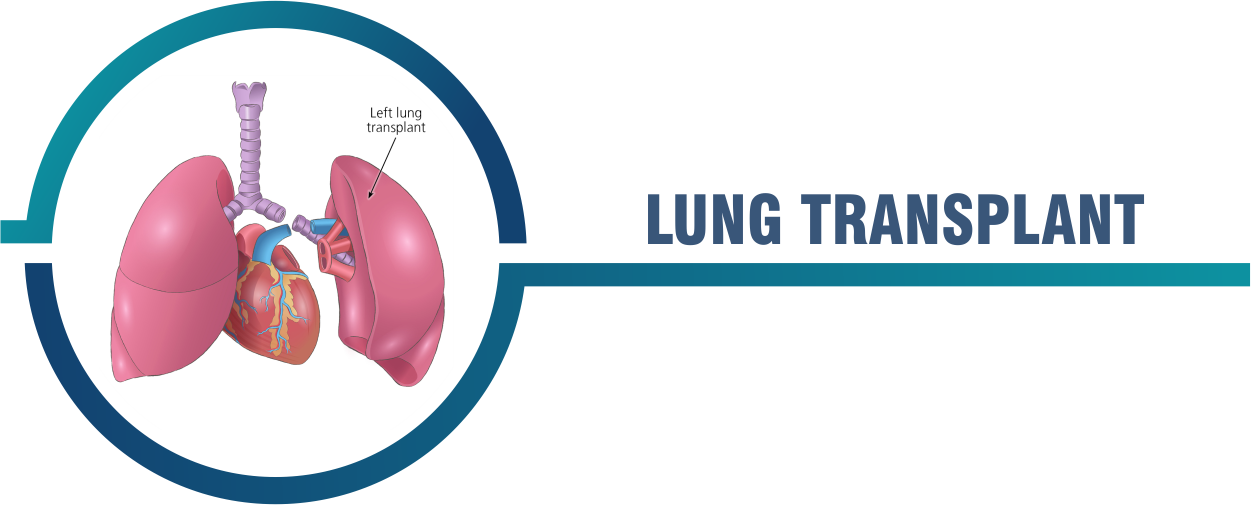
About Lung Transplant
A lung transplant is a type of operation where a donor lung is used to replace your diseased or damaged lung. The majority of donated lungs are from the dead.
You must have a severe lung ailment that is unresponsive to medicine and other treatments in order to qualify for a lung transplant.
The three basic forms of lung transplants are as follows:
- Single Lung Transplant - Your sick or damaged lung will be removed, and a donated lung will be placed in its place.
- Both Lung Transplant- Your two lungs will be removed, and donor lungs will be placed in their place.
- Lung and Heart Transplant. Your heart and both of your lungs will be out of your body, and they will be replaced by a donor heart and set of lungs.
Lung transplantation may treat many different conditions, including:
- Bronchiectasis.
- Chronic Obstructive Pulmonary Disease (COPD).
- COVID-19.
- Cystic Fibrosis (CF).
- Interstitial Lung Disease (ILD).
- Lung Injuries.
- Pulmonary Hypertension.
Symptoms
Patients with end-stage lung illness, which frequently involves the following conditions; may consider receiving a lung transplant.
- Life expectancy is short (less than two years).
- There is no improvement with conservative therapy.
- Oxygen Reliance.
Risk Factor
- Bleeding.
- Infection.
- Blood clots.
- Blockage of the blood vessel of the new lungs.
- Blockage of the airways.
- Severe pulmonary edema.
- Rejection of new lungs.
Investigations
Pre-evaluation of all prior medical histories, X-rays, biopsy slides, surgery reports, and a list of medications is advised for the patient. In order to balance and update the results of the earlier tests, one or more of the diagnostic tests listed below are typically performed during the assessment.
Psychological and social assessment: This test focuses mostly on stress management, financial challenges, social issues, and family and friend support.
Blood test: locating a donor match requires this step.
| Procedure | India | Turkey | Dubai |
| (Price in USD) | (Price in USD) | (Price in USD) | |
| Lung Transplant | 25000 | - | - |
| Pulmonary Fibrosis Treatment | 2000 | - | - |
Note : This is an approximate cost and may vary depending on various condition of the patient health after physical evaluation.
Treatment Options
Side Effects
- Mood changes such as depression or anxiety
- Diarrhea.
- Insomnia.
- Swollen gums.
- Bruising or bleeding more easily.
- Convulsions.
- Dizziness.
- Headache.
- Acne.
- Extra hair growth.
- Weight gain.
Benefits
Success Rate
More than 80% of recipients of lung transplants survive for at least a year. Between 55 and 70 percent of people who received lung transplants are still alive after three years. The primary factor affecting lung transplant survival is age at the time of transplant.
